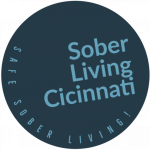Drug use is a pervasive issue that affects individuals and communities worldwide. The consequences of drug use, such as addiction, health problems, and social disintegration, are well-documented. However, to effectively address this problem, it is crucial to understand the complex motivations that lead individuals to use drugs in the first place. By unraveling the hidden factors behind drug use, we can develop targeted prevention and treatment strategies that address the root causes of this behavior.
Understanding the motivations behind drug use
Drug use is a multifaceted behavior influenced by a combination of biological, psychological, social, environmental, and cultural factors. To gain a deeper understanding of drug use motivations, it is essential to examine each of these factors individually and how they interact with one another.
Biological factors influencing drug use
Biological factors play a significant role in drug use. Genetic predisposition, brain chemistry, and the reward system are among the key biological factors that can influence an individual’s susceptibility to drug use. Genetic studies have shown that certain individuals may be more prone to developing an addiction due to inherited traits. Additionally, variations in brain chemistry, such as low levels of dopamine, can contribute to a heightened desire for the pleasurable effects of drugs. Understanding these biological factors can help in identifying individuals who are at higher risk for drug use and developing personalized prevention strategies.
Psychological factors contributing to drug use
Psychological factors, such as mental health conditions, personality traits, and coping mechanisms, can also contribute to drug use. Individuals suffering from mental health disorders, such as depression, anxiety, or PTSD, may turn to drugs as a means of self-medication. Moreover, certain personality traits, such as impulsivity or sensation-seeking, can increase the likelihood of drug experimentation and addiction. Additionally, individuals who lack healthy coping mechanisms to deal with stress or trauma may resort to drugs as a way to escape or numb their emotions.
Social and environmental factors influencing drug use
Social and environmental factors play a significant role in shaping drug use behavior. Peer pressure, social norms, and exposure to drug-related environments can all influence an individual’s decision to use drugs. For example, adolescents are particularly susceptible to peer pressure, and if their social circle engages in drug use, they may be more likely to experiment with drugs themselves. Furthermore, individuals living in neighborhoods with high rates of drug availability and crime are more likely to be exposed to drug use and become involved in drug-related activities.
Exploring the role of mental health in drug use
Mental health and drug use are often intertwined. Individuals with mental health disorders may turn to drugs as a form of self-medication, seeking relief from their symptoms. Conversely, drug use can also lead to the development or exacerbation of mental health issues. Substance use disorders can significantly impact an individual’s mental well-being and contribute to the onset of conditions such as anxiety, depression, or psychosis. It is crucial to address both mental health and substance use disorders simultaneously to provide comprehensive treatment and support.
The impact of socioeconomic factors on drug use
Socioeconomic factors, such as income, education, and employment, can influence drug use patterns. Individuals from disadvantaged backgrounds, with limited access to resources, may be more vulnerable to drug use as a means of coping with stressors and escaping from the challenges they face. Additionally, unemployment and lack of educational opportunities can contribute to feelings of hopelessness and increase the likelihood of drug use. Understanding the impact of socioeconomic factors on drug use can help in designing interventions that address the underlying social determinants and promote equal access to prevention and treatment services.
Cultural and societal influences on drug use
Cultural and societal factors shape our attitudes and perceptions towards drug use. Cultural norms, religious beliefs, and media portrayals can all influence our understanding and acceptance of drug use. For example, certain cultures may have social rituals or traditions involving drug use, which can impact an individual’s perception of drugs and their likelihood of using them. Furthermore, media representations of drug use can either glamorize or stigmatize the behavior, influencing how individuals perceive and engage with drugs. By understanding these cultural and societal influences, we can develop culturally sensitive prevention and treatment approaches that address specific beliefs and values.
Unveiling the hidden factors behind drug use
While the factors discussed above provide a comprehensive overview of the motivations behind drug use, it is essential to recognize that each individual’s experience is unique. There are often hidden factors that contribute to drug use, such as childhood trauma, adverse childhood experiences (ACEs), or unresolved emotional issues. These hidden factors can be deeply personal and require a therapeutic approach to address effectively. By unveiling these hidden factors through individualized assessments and therapies, we can provide holistic and tailored interventions that address the root causes of drug use.
Conclusion and implications for prevention and treatment efforts
Understanding the complex motivations behind drug use is critical for developing effective prevention and treatment strategies. By acknowledging the biological, psychological, social, environmental, and cultural factors that influence drug use, we can create comprehensive approaches that address the multifaceted nature of this behavior. Furthermore, recognizing the impact of mental health, socioeconomic factors, and hidden personal issues on drug use allows us to provide targeted support and interventions that promote long-term recovery and well-being. By unraveling the hidden factors behind drug use, we can pave the way for a healthier and drug-free society.
If you or someone you know is struggling with drug use, seek help from a qualified professional or a local support group. Remember, there is support available, and recovery is possible. Call us today at 855-675-1892.













